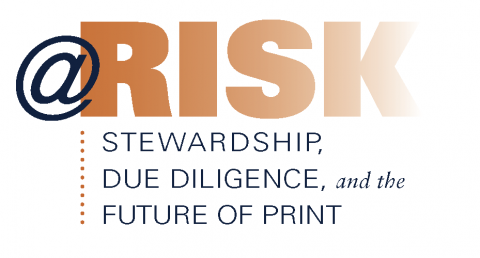Print is rapidly disappearing from our libraries. Even the largest research libraries are:
- weeding duplicates and extraneous publications;
- withdrawing low-use materials to remote sites;
- and discontinuing print subscriptions for journal and newspaper titles.
The pressure to divest is a matter of scarce resources. The space, staff, and funds available to us are no longer adequate to sustain physical collections at the kind of scale that has been the strength of North American libraries in the past, while meeting new demand for learning spaces, information commons, and digital resources. As a result we now risk the loss of important data, evidence, and knowledge. A recent CRL report on print archiving suggests that many consequential decisions on withdrawal are made “blind,” based on inadequate and outdated information and questionable assumptions.
How we manage the historic shift from print to digital may well define the legacy of our generation of librarians. The immensity of the challenge requires collective action, and clear consensus on the meaning of stewardship.
To illuminate the challenges and create consensus in our community on priorities, and on what due diligence is required -- and feasible -- CRL will host @Risk: Stewardship, Due Diligence, and the Future of Print, a Global Resources Collections Forum in Chicago on April 14-15, 2016, in conjunction with CRL's annual meeting.The forum will explore the meaning of due diligence and responsible stewardship at a time when managing collections is giving way to other library roles and responsibilities. And it will determine how CRL will support of print sharing and preservation in the coming years. To seed the Forum conversation, between now and April I will post to this space findings of our analyses of the print landscape, thoughts on the risks we face, and information on models of due diligence in other sectors.
The times is ripe for a systematic, community-wide approach to this challenge.
Bernard F. Reilly
President (2001-2019)
Center for Research Libraries
